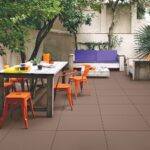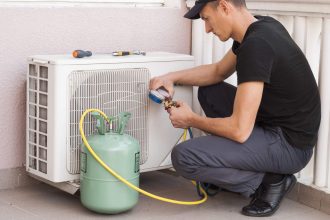Choosing new windows for your home is a significant decision that impacts both the aesthetic appeal and energy efficiency of your property. Windows serve as more than just openings that allow natural light into your space. They play a critical role in insulation, security, and even noise reduction. Therefore, when looking for new windows, there are numerous factors to consider that will help ensure you make the right choice for your home.
Assessing Energy Efficiency
One of the first considerations when choosing new windows is energy efficiency. Modern windows come with various energy-saving features that can dramatically lower your heating and cooling costs. Look for the Energy Star label, as windows with this certification meet stringent energy efficiency guidelines set by the U.S. Environmental Protection Agency.
You’ll want to consider the materials used in the window frame, glass type, and glazing options. Double or triple-pane glass is generally more energy-efficient than single-pane because it creates a gas-filled chamber that provides better insulation. According to the Department of Energy, energy-efficient windows can reduce energy bills by 7-15%, making them a worthy investment.
Understanding Different Window Styles
Windows come in a variety of styles, each offering a distinct aesthetic appeal and functionality. Common styles include casement, double-hung, sliding, and picture windows, among others. Each type has its advantages and limitations, so it’s essential to choose one that suits your home’s architecture and your personal preferences.
Casement windows open outward for maximum ventilation, while double-hung windows allow for easy cleaning and offer a classic look. If you’re looking to create a stunning view, picture windows, which are fixed and do not open, can let in an abundance of light. Take time to explore different styles and consult with an expert to identify which will best enhance the character of your home.
Material Matters
The materials used to fabricate window frames can significantly affect durability, maintenance, and aesthetics. Common materials include vinyl, wood, fiberglass, and aluminum, each with its unique benefits and drawbacks. Vinyl windows are low-maintenance and energy-efficient, making them a popular choice. However, they may lack the aesthetic appeal of wooden frames, especially in traditional homes.
Wooden windows provide natural elegance and can be painted or stained to match your decor, and they may require more upkeep. Fiberglass options are durable and energy-efficient and can be more expensive. Aluminum frames are lightweight and strong and may conduct heat and cold, affecting energy efficiency. Assess how each material aligns with your lifestyle and budget before making a final decision.
Choosing Glazing Options
The type of glass you choose for your windows is equally important. Standard single-pane glass is less impressive in terms of insulation and energy efficiency compared to its double or triple-pane counterparts. Special coatings can further enhance performance. Low-emissivity (Low-E) coatings reflect heat back into the room during winter while keeping it out during summer, providing year-round comfort.
Investing in energy-efficient glazing options can be crucial for homes in extreme climates, where temperature regulation plays a vital role in comfort and utility costs. Understanding these glazing options can help you make a more informed choice that suits your home’s specific needs.
Budget Considerations
While quality windows can be cost-effective in the long run, they do come with an upfront investment that may vary significantly based on materials, styles, and energy-efficient features. Establishing a clear budget before you start shopping will guide your decisions. Consider the cost of the windows themselves and the installation expenses, which can fluctuate based on your geographical location and the complexity of the project.
Look for options that fit within your budget while still prioritizing quality and energy efficiency, as this will help save you money in the long term. If you’re tightening your budget, explore financing options or check for any local rebates or incentives that can help reduce overall costs.
Installation Process
The installation of new windows is a crucial aspect of the overall project, impacting both performance and aesthetics. It’s advisable to hire professionals for this task, as improper installation can lead to common issues like air leaks, moisture intrusion, and poor energy performance. Research local credentialed contractors who specialize in window installation to ensure your new windows are correctly and securely fitted.
A well-installed window ensures optimal performance and can enhance your home’s curb appeal. Proper sealing during installation is critical, so take the time to ask questions and ensure that the team is qualified and experienced. To get the best results, consider options for hiring a company that specializes in custom windows in Louisville or your area, as they can provide tailored solutions that fit your specific needs. With the right team in place, you can feel confident that your investment will deliver both long-term durability and visual appeal.
Maintenance Requirements
Different window materials and types come with varying maintenance requirements. Understanding these beforehand can save you time and frustration after installation. Vinyl windows typically require less upkeep, as they do not need painting and are resistant to rot. On the other hand, wooden frames may need regular painting or staining to protect against weather damage and decay.
A good maintenance routine extends the life of your windows and keeps them looking great. Discussing maintenance expectations with your supplier can help you gauge what you are comfortable taking on as a homeowner. Knowing how to properly care for and maintain your windows is essential for ensuring they perform well over time and provide maximum value.

Consideration for Local Climate
Your local climate can significantly impact your window choice. Homes in regions with high humidity or extreme temperatures may benefit more from energy-efficient windows designed with weather resistance in mind. Windows with good UV protection can help safeguard your furnishings from sun damage in sunny areas.
Consultation with an expert can guide you toward the best choices that cater to the specific challenges posed by your environment. Research regional climate conditions and understand how different window designs perform under those conditions before finalizing your selection. This consideration will help you enjoy both comfort and energy efficiency in your home.
Understanding Warranties and Guarantees
Before finalizing your window purchase, make sure to review the manufacturer’s warranty. A good warranty protects your investment and serves as a mark of quality for the products you’re investing in. A robust warranty typically covers issues related to manufacturing defects, fading, and may even extend to labor costs associated with installation.
Be proactive in understanding the terms of the warranty. Some warranties may require specific maintenance to remain valid, so ensure you’re willing to commit to that if necessary. In summary, having a warranty can provide you with peace of mind, knowing that you are covered in case any issues arise down the line.
Choosing the right windows for your home involves careful consideration of various factors ranging from style to efficiency. By taking time to evaluate your options adequately, you can make a well-informed decision that enhances both the aesthetics and functionality of your living space. A thorough understanding of your choices will serve you well, creating an environment that you can enjoy for years to come.














